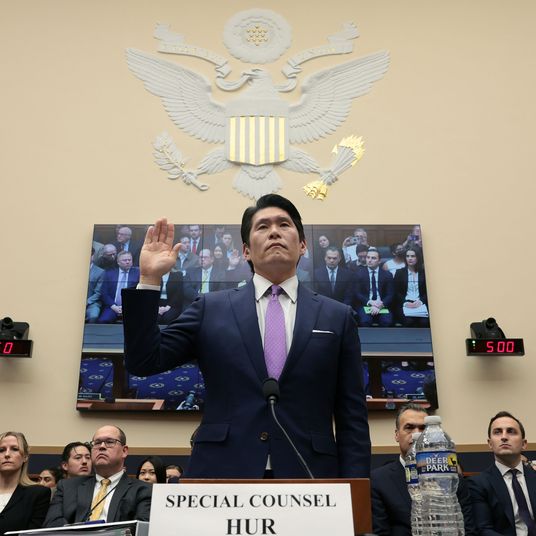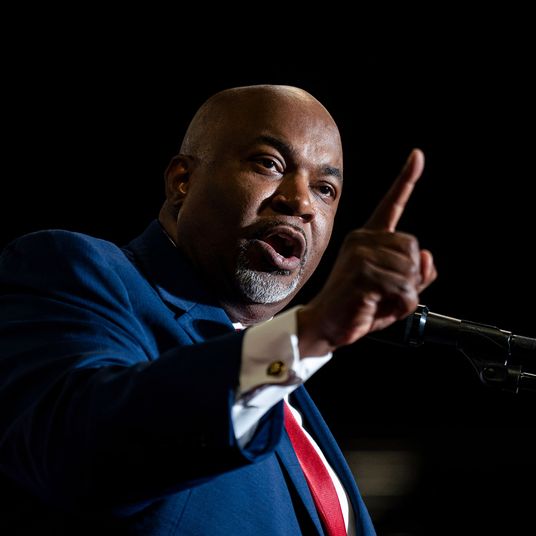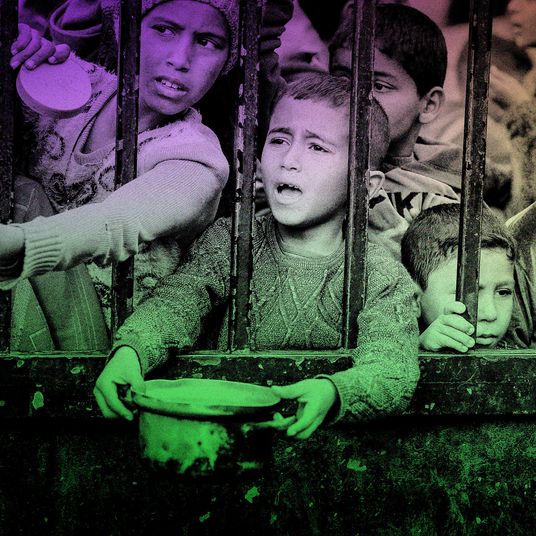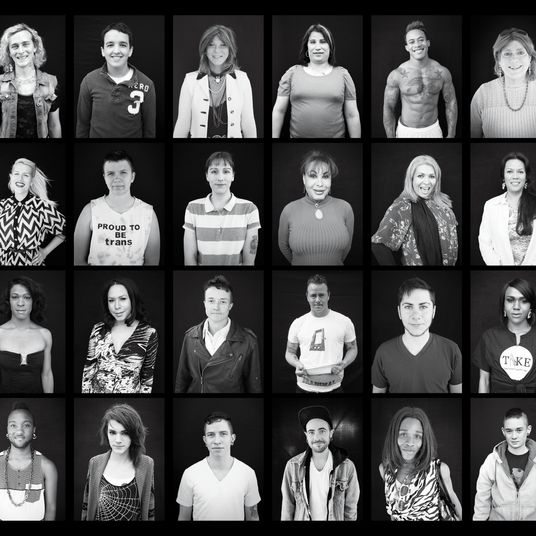Psychologist Jean Twenge has made her name puzzling out the differences between generations. In 2006’s Generation Me, Twenge, who is a professor at San Diego State University, described millennials as entitled and confident yet unsatisfied. In 2017’s iGen, she characterized Gen Z as cautious to a fault, addicted to their phones, and miserable. An adapted excerpt from that book in The Atlantic helped ignite a debate about the connection between rising teen depression and anxiety and the smartphones that had become ubiquitous several years earlier. Twenge’s new book, aptly titled Generations, uses troves of data to explore differences — largely tech-driven — between age cohorts.
Critics of Twenge’s work have accused her of exhibiting confirmation bias in how she presents data and ignoring alternate explanations for teen unhappiness. (The notion that generations are so easily definable in the first place is another general area of dispute.) But as the rates of serious depression among young people — especially girls — grows more alarming and persuasive new research emerges about its causes, her theory of the case on teen misery is looking increasingly solid. I spoke with Twenge about how thinking about this phenomenon has changed in the last few years, whether she thinks new state laws on social media might be the way forward, and whether the state of the world has prompted fatalism among young people.
When your Atlantic story came out in 2017, it helped kick-start the conversation around social media and teen depression. For a long time, there was considerable pushback to the idea that the two were inextricably linked. A lot of people made the point that even though “technology is making kids miserable” was an intuitive idea, there wasn’t enough empirical proof to really prove it. Here’s the opener of a 2020 New York Times piece: “It’s become common wisdom that too much time spent on smartphones, et cetera, is responsible for a recent spike in anxiety and depression. But a growing number of academic researchers have produced studies suggesting that common wisdom is wrong.”
But now it feels like a lot of that resistance has melted away. There’s far more consensus that smartphones are a major factor in this crisis, even if they’re not the only one. Why is that? Better research? Or are people just more thoroughly digesting what they’re seeing in front of them?
I think there’s a number of factors. One is I think it’s becoming increasingly clear that correlational studies finding there was no link between social-media use and depression had some pretty significant flaws. That New York Times article that you’re referring to, if I remember right, had a picture of Candice Odgers in it, right?
Yes, that’s right.
One of the studies she frequently presents measured social-media use from “never” to “every day,” and then looked at any links to happiness or well-being. Well, when teens use social media now, if they do at all, they use it every day. So that’s a really poor measure. And speaking very broadly, daily social-media use is usually not the issue — excessive use is. It’s three, or especially five, or seven, or more hours a day of social media where you find the strong links to depression.
The bigger one was an Orben and Przybylski paper in Nature Human Behaviour in January 2019. That paper was very often cited as being about social media and depression. But even just the scan of the title on the abstract shows it was actually about all screen time. They included TV; they included even owning a computer, and they threw all these things together. And so not only did they not zero in just on social-media use, there were also several really significant flaws in their method, which I pointed out in a paper.
But for the sake of argument, let’s set aside whatever I did. Two other research groups also concluded that the same datasets Orben and Przybylski used showed significant links between social-media use and depression. Yvonne Kelly and her colleagues had a paper come out the same month as Orben and Przybylski’s, showing that girls who spent five or more hours a day on social media were three times as likely to fit clinical criteria for depression as nonusers of social media. And then several years later, after we had gotten the data, and the code, and been able to use the same sophisticated statistical technique they did, we found the same thing.
So a pattern begins to emerge.
The same month our paper came out, two researchers in Spain posted another paper on a preprint server. They’re not only not collaborators of mine — I had never met them or heard of them. And they used the same sophisticated statistical technique, but similar to us, narrowed in more on social media. And they came to many of the same conclusions about some of the flawed analyses in the Orben and Przybylski paper. So I think three independent research groups coming to different conclusions than Orben and Przybylski really started to change the conversation as well. And there are other elements; those are just some examples.
The other piece here is that when the Atlantic article came out, that was an excerpt of my 2017 book. If I remember correctly, we only had data up until 2015, and these increases in depression started around 2012. So we really only had a few years of data. For a lot of folks, the idea was, “Maybe this is a blip that’s going to go away, and who knows what the cause is.” My theory was: If it is phones and social media, and if phones and social media continue to rise in popularity and frequency of use, then the rise in depression should continue. If it’s something else, say economic circumstances, or some other, onetime event, it should fade. And what happened is it kept going.
As you mentioned before, the notion of “screen time” is a vague concept. But now it feels like researchers have gotten more savvy about which kind of screen time in particular, and how much of it, could be dangerous.
I think so too. Something I became more interested in was, is it everything on a screen or is there a stronger link to depression with certain activities versus others? So one of my papers a couple years ago was titled “Not All Screen Time Is Created Equal.”
Have you gotten to the point where you can point to certain apps that you think might be worse than others? Is there a hierarchy of misery there?
The paper I just mentioned looked at the “social media versus gaming” question. And yes, the links to depression are stronger for social media. That’s true even if you look at boys and girls separately, which I know sounds like a detail, but it’s not. That’s really, really important in this area of research, because girls spend more time on social media, boys spend more time on gaming, and there’s a significant sex difference in depression. So you have to look at them separately, or at least control for gender.
You believe that social media itself is a major driver of harm. But I’m wondering about the opportunity costs of using it, too. Because your findings show that young people are going out less, they’re hanging out with one another less; they’re overall a lot less independent than previous generations. If they lived lives that encompassed both heavy use of social media and the more traditional markers of young adulthood, would that mostly allay the problem? Or is social media just by itself enough to do this damage?
I think it would be less, but it would still be there.
This is the thing about the rise of social media and excessive use of social media: There’s so many possible mechanisms. There’s the fact that they have less time for seeing friends face-to-face, which happens at the group level, too. Even if you don’t use social media, who are you going to go out with when your friends are all on Instagram and going out in person is no longer the norm?
Then there’s the displacement of other beneficial activities like exercise and sleep. Not getting enough sleep is a major risk factor for mental-health issues, and teens started sleeping less right around 2012. Again, right around that turning point for social media and smartphones. And data I published shows that, not surprisingly, the teens who spend a lot more time on portable electronic devices are not sleeping as much. Then there’s content. And I think that’s the other way that the research has really evolved in the last six years, is we know a lot more about the impact of content.
Meaning?
Meaning social comparison, lots of body-image issues, especially for teen girls and young women; cyberbullying, sexual exploitation, going down rabbit holes of negative content, and then not being able to reset because the algorithms think this is the content you want to see. There’s just so many other problems. And some of the research in that area around the problematic content was done by Meta themselves.
That’s what Frances Haugen’s leaked documents showed.
There’s obviously a flip side to this, which is that the internet often makes people feel less alone as well — both young people and adults. There are shy or weird or socially awkward kids who would have no community whatsoever in the old days, the old, supposedly better days, who can now sometimes find that community online.
That’s the argument and an area where I think there’s intuitive appeal to that, but not a ton of research.
So you just need a few more years to delve into that more thoroughly, you think?
Perhaps. I don’t know, and I’d have to look into this to see if it has been done. But is there research showing that, say, LGBTQ kids in rural areas, where they may not be able to find a community in person, are better off if they spend a lot of time online versus less? I don’t know if that’s been addressed. I don’t know if that research is out there.
You’d have to design that experiment very, very carefully.
Yes, exactly.
You speak to a lot of kids and young adults for your books. To what extent do they agree with your hypothesis? Do they think, Yeah, this is screwing us up? And is there any kind of real anti-smartphone movement among the young, other than a few kids in Brooklyn?
I should be clear that the people I’ve talked to are not a representative sample. This is why most of the research that I do is based on nationally representative samples. But I did a bunch of interviews for iGen, the 2017 book, and then I also gave a lot of talks on that book at middle schools and high schools. What I find the most often is that kids adamantly say, “We do not want our phones taken away” — they use that phrase very specifically. But then they also say, “Having a break from it is nice. And yeah, I don’t feel good when I’m on social media,” and “I don’t want to spend this much time on social media, but I don’t know how to stop.”
That’s relatable.
I think a lot of people feel that way. And I’ve seen a few young people who have started conversations around this issue over the last few years. Emma Lembke, who’s a college student at, I think, Washington U. in St. Louis, did a really interesting interview with the Times, talking about how she had a very negative experience with Instagram as a young teen. She started a movement called Log Off to get young people talking about this issue of cutting back on social media, on letting it take over your life. So there’s more conversation around that.
One really fascinating thing in those leaked Meta documents was that in focus groups they convened of teen girls, the girls blamed social media for the high rates of depression among teens. There’s an exact quote in the documents The Wall Street Journal posted. When asked, “Why do you think teens now are more depressed?” the groups named social media “unprompted and consistent” across all groups. That’s stunning to me, because not only is this a group you wouldn’t necessarily expect would come to that conclusion, but they came to it in research conducted by Meta.
I’ve had debates with friends where they advanced the notion that the world’s degraded state — climate change, regular school shootings, political strife — might be a primary reason younger generations are so miserable. Or, to go with an angle I find more plausible: The news isn’t necessarily worse, but the internet, with its inherent negativity bias, spins things as bleaker than ever.
I think that’s exactly it. In Generations, I spent a lot of time on this, because it was a theme that just came up over and over and over — this really pervasive negativity, sometimes crossing over into denialism, especially online. And I think you have to take a step back from that and ask the question: Is 2023 really worse than boomers getting drafted into Vietnam? And I’ll keep going. Is it really worse than the ’80s when we thought the USSR was going to drop the bomb any second and the world was going to end? Is it really worse than millennials graduating into the Great Recession?
To be fair, the late ’90s, when I was coming of age, was pretty untroubled in a world-on-fire sense.
There are times that are better and worse, but every time has its challenges. And are the challenges we face right now really worse than the challenges of previous eras? I think that’s an extremely subjective question.
You framed it as asking, “Is this why kids are depressed?” So just to reason it through, if it was school shootings, then what we would expect would be depression starting to spike in the late ’90s. By the way, that was the problem with the late ’90s.
Yeah, but it wasn’t this pervasive. It was still a terrible novelty.
But if it was school shootings, we would expect that the rise in teen depression and loneliness would be a U.S.-only problem, and it’s not.
We see this internationally. There’s the strongest evidence in English-speaking countries, but around the world, we were able to look at adolescent loneliness and it increased in the same identical pattern to the U.S. in 36 countries around the world.
So that points away from school shootings pretty strongly. Climate change, that’s a worldwide issue, but at least in the U.S., surveys where I’ve been able to look at the data concern around the environment peaked in the ’90s, not recently. So there’s that. And then the other piece of it is just thinking about the way kids and teens develop. Generally, they don’t become really interested in big, global issues like that until late high school and college.
And where are the links between technology use and depression strongest? The youngest. Where do you see the largest increases in depression, self-harm, and suicide? It’s 10- to 14-year-olds. In fact, it’s 10- to 12-year-olds when you really boil it down. That’s not usually going to be the group who is really dialed into world issues. What they’re concerned about is what their friends are doing.
There’s the overly negative side of social media we’re discussing, but also the overly positive side — people flaunting their unattainable lifestyles on Instagram, for instance. And I feel like there’s been an absorption of both of these extremes that helps foster a kind of nihilism.
The negativity piece is also interesting to me, because there’s a chicken-and-egg problem. So is it that there’s negativity online and that’s why kids are depressed? Well, as I said, I don’t think so, given that it’s stronger among the younger groups, but could it be that people are more negative online because more people are depressed? Maybe. So it could be going both ways.
A lot of people are much more conscious of social media’s effects, and many now view it as a societal crisis. Naturally, legislation has popped up, some of it more reasonable, some less so. There’s a bipartisan congressional bill that would ban kids under 13 from joining social networks, which is probably not going anywhere. But recently, Utah did pass a bill mandating parental permission for anyone under 18 to join certain social networks like TikTok and so forth. What do you think of these efforts? Are they even possible to implement, for one thing, and do you think a crackdown is the right sort of approach?
Yeah, I do. I think we should raise the minimum age for social media to 16, and actually verify age. The good news here is there are an increasing number of companies, like third-party vendors who verify age. And there’s various techniques for doing so. They have their own trade association now, apparently.
This all seems like a difficult road to me, because first of all, nobody’s better at getting around restrictions than a 15-year-old. I’m not familiar with the current age-verification technology, but doing this on a mass scale seems like a real challenge in American society, just on an implementation level. But you’re saying that if they could, they should.
Yes.
Okay. Why 16?
Well, you could do 18. I think that would be fine, too. I like 16 because then if 16- and 17-year-olds want to, say, get involved in political issues, then they can do so.
Obviously, we need to find a happy medium between complete lack of regulation and banning everything. Should we ban social media outright? No, I don’t think so. And I think that the clearest solution is age minimums.
How do you think people are going to think of this era in ten years, of unrestricted social media and what we think we know about the connection between that and teen mental health? Are we going to look back in horror? Are we going to be in the same place we are now?
I don’t know. I hate the predicting-the-future thing, even though that’s the whole last chapter of my book. In that last chapter, as much as possible, I went back to those surveys of teens, because then you can see what might be coming in the future for things like the birth rate and the workplace. With this, I think it’s harder to predict. But I’d like to think that in a few years, we’ll look back at an era where we handed 10-year-olds smartphones and just told them to go at it as crazy.
I do think the stuff with kids is the piece that’s going to change.
The 10- to 14-year-olds?
Yeah. I think that’s where you’re going to get the biggest consensus. Because, look, social media has other issues, let’s just say, and things that are probably not good for our democracy, and not good for social life for adults, either. But let’s at least protect kids. Let’s get social media out of middle schools, for example.
I think few people would disagree on that one.
Yeah.
This interview has been edited for length and clarity.


























